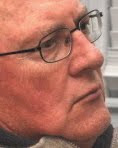


A 4th order Bessel high pass filter can be constructed as shown in Fig. 1 (click on the image to see a larger view.) The design example is for a 1KHZ cut off high pass filter. The transient and AC analysis SPICE plots are shown also. Note the smooth variation in phase in the AC analysis and the stability shown by lack of ringing after a pulse edge in the transient analysis.
For convenience we will let the value of the complex operator s be transformed to a substitute complex operator as
u = 1 / s
Then we can write the transfer function for the high pass filter as
A(u) = K / (( 1 + a1 * u + b1 * u^2) * ( 1 + a2 * u + b2 * u^2 )...)
A(u) is valid as long as the filter is a time-invariant linear circuit.
The coefficients for various filters are already known and we will use the Bessel coefficients for a 4th order filter. We choose the Bessel coefficients because it will give us a linear phase response and good pulse response. The Bessel coefficients for 4th order filters that fit the above transfer function are
a1 = 1.3397
b1 = 0.4889
a2 = 0.7743
b2 = 0.3890
To design the filter we will first pick a standard capacitor value that we will use for both 2nd order stages and then calculate the corresponding resistor values using the four Bessel coefficients.
R1 = 1 / ( Pi * Fo * C* ai ) and R2 = ai / (4 * Pi * Fo * C * bi)
where ai and bi are a1, a2 and b1, b2 coefficients depending on which stage the resistors are calculated for, that is a1 and b1 for the first stage and a2 and b2 for the second stage.
Doing the calculations we find
R1 = 2.376K
R2 = 2.181K
R3 = 4.111K
R4 = 1.584K
with C = 0.1UFD and Fo = 1KHZ
Note that R1 and R2 are for the first stage, and R3 and R4 represent the R1 and R2 for the second stage. See Fig. 1.
The Q or quality factor can also be calculated for each stage from
Q1 = ( b1 )^0.5 / a1
Q2 = ( b2 )^0.5 / a2

No comments:
Post a Comment